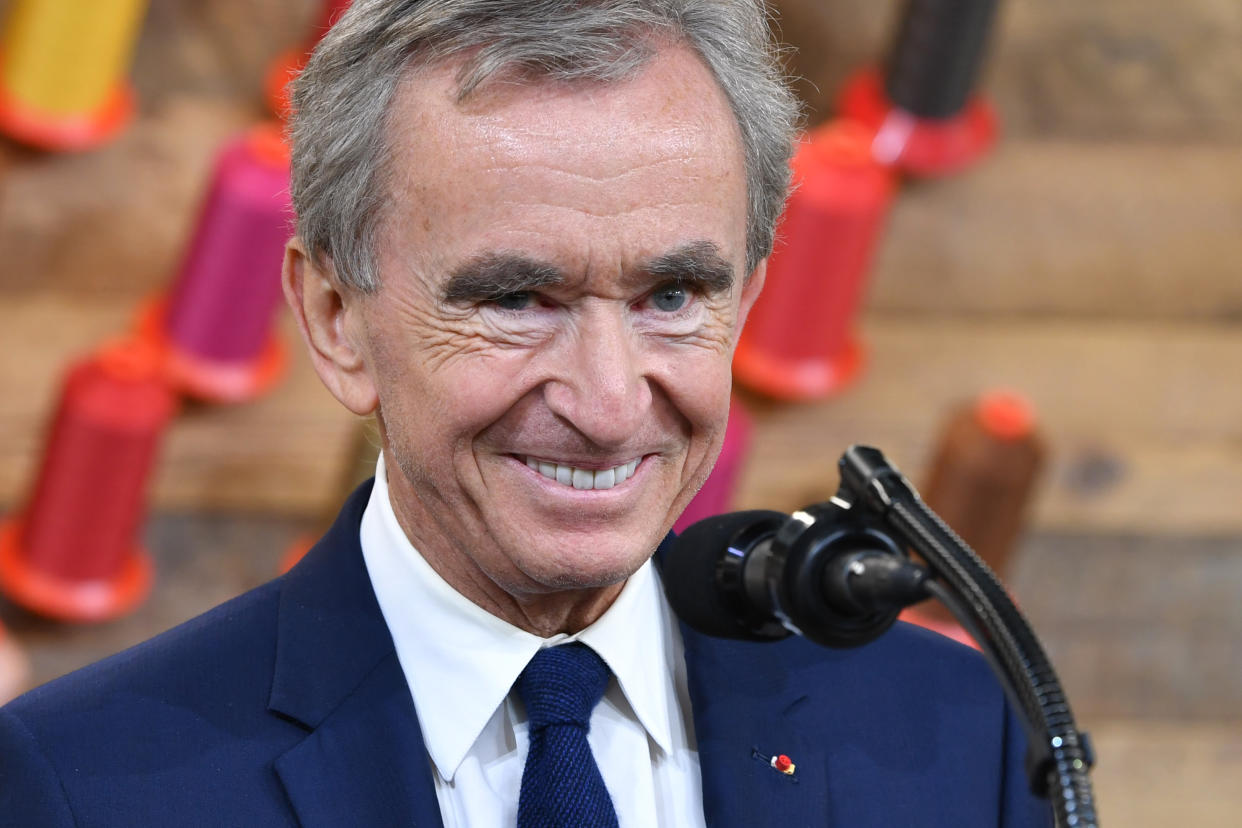Richest person in Europe's wealth rockets as luxury sales recharge

French luxury conglomerate LVMH Moet Hennessy (MC.PA) said that strong growth in its biggest business buoyed profits in the third quarter as strong demand for Louis Vuitton and Dior helped offset steep declines elsewhere caused by COVID-19.
The unexpected announcement this week saw the net worth of chairman and CEO of LVMH, Bernard Arnault jump by $8.3bn (£61bn). This puts the 71-year-old on track to become the world’s fifth centibillionaire, behind Jeff Bezos, Bill Gates, Elon Musk, and Mark Zuckerberg on the Bloomberg Billionaires Index.
It has been a whirlwind few months for the French tycoon, who in March 2019, overtook Warren Buffet to become the third-richest person in the world. At the moment Amazon boss (AMZN) Jeff Bezos tops the list.
Before the pandemic hit, Arnault net worth was soaring as LVMH was posting record-breaking revenues, but the forced closure of retail stores and record job losses wiped out almost 50% of his personal wealth.
Leaving Arnault with a net worth of $77bn, down from $109bn in January 2020.
Revenue at LVMH — the world’s biggest luxury goods maker — increased by 12% compared to a year ago. Meanwhile, sales at its brand, Hennessy Cognac held steady, driven by strong consumption in the US.
But, weakness in its sales of duty-free retail, due to the global impact of coronavirus lockdown on the travel industry, cosmetics, watches and jewellery saw the the group’s overall profit contract by 7% in Q3 to €11.96bn ($14bn, £11bn).
READ MORE: Mark Zuckerberg joins ranks of 'centibillionaires' as wealth hits $100bn
The conglomerate's CFO, Jean Jacques Guiony, said: "We lost a big chunk of the touristic business," he said. "We didn't have the boost of the local client bases, which are less well-developed than they are at Louis Vuitton and Dior."
The coronavirus pandemic hammered the luxury good industry as wealthy spenders delayed purchases and with travel restrictions curbing free-spending Chinese customers.
LVMH’s watches and jewellery brands, which include Bulgari and Tag Heuer, suffered from Chinese and other Asian travellers being stuck at home, where they are less likely to splurge than when on trips abroad. “Those brands aren't as strong among Western clients as LVMH's big fashion brands,” Guiony said.
READ MORE: Tiffany sues LVMH as French luxury giant pulls out of $16bn takeover
The group which is currently embroiled in a legal dispute over its planned acquisition of US jeweller Tiffany’s has successfully withstood the coronavirus crisis better than some of its rivals.
In September, the luxury goods giant ended plans to buy Tiffany (TIF), prompting a law suit to try and force the deal through. At the time the brand said that its board of directors had met to review the deal and concluded: “As it stands, the LVMH Group would... not be able to complete the transaction to acquire Tiffany & Co.”
LVMH announced plans to buy Tiffany for $16bn in November last year. Since then COVID-19 has rocked the global luxury goods market and trade tensions have flared between France and the US. It said threats of US tariffs on French luxury goods were “likely to weaken the transaction.”
In July, the US threatened to hit high-end French imports with tariffs of 25% in response to French plans for a digital tax on American companies like Google (GOOG) and Facebook (FB).
Watch: What is a V-shaped economic recovery?

 Yahoo Movies
Yahoo Movies 
